How world leaders and citizens are handling coronavirus
Who would want to be a leader during a pandemic? Faced with making decisions that should save lives, but might also cause devastating economic damage? Telling citizens they must not do their favourite things, like going out for dinner, away for a weekend, having a beer with a few friends?
No politician wants to be the bringer of bad news, so it’s been interesting to observe how different leaders have risen to their pandemic responsibilities, how they have coped with decisions most of them probably never, even in their worst nightmares, imagined they would have to make.
Here in Switzerland our low key seven-member government assumed emergency powers quickly, but with a certain air of reluctance
US President Donald Trump famously suggested he had “total authority”, thereby dismissing more than two centuries of US constitutional practice, along with 50 states, and their governors. Emmanuel Macron of France used his undisputed presidential powers to impose a strict lockdown, but has at the same time argued for global solidarity, and suggested the pandemic required a rethink of capitalism.
Meanwhile here in Switzerland our low key seven member government assumed emergency powers quickly, but with a certain air of reluctance. In fact it has been rather refreshing to hear Swiss president Simonetta Sommaruga suggest the government does not want these powers for too long, wants parliament back in session soon, and in the meantime is grateful for the searching questions of journalists at the daily pandemic press briefings.
Equally interesting has been our own reaction to our politicians. The enforced restrictions placed on our lives might have been expected to cause a howl of protest. In fact, there was scarcely even a whimper. When your government tells you “our backs are to the wall”, as Swiss health minister Alain Berset did, you take it seriously.
Across the border in France, I have friends who have an instinctive skepticism of governments. Yet they have accepted Macron’s lockdown meekly, some even suggesting the measures should be even stricter. In the UK, colleagues who are most definitely not natural Tories told me they thought Prime Minister Boris Johnson’s address to the nation, watched by 28 million people, was a fine thing.
But, but…human rights
Our need to have faith in our governments right now is understandable. We all know there will be many investigations over how different countries, and indeed the World Health Organization, handled this pandemic. Nevertheless human rights organisations warn that a crisis should not be a reason to give our leaders carte blanche to do whatever they like.
“We rightfully look to governments to protect us,” says Ken Roth, who is Executive Director of Human Rights Watch. “International human rights law contemplates governments taking additional powers in times of crisis, so long as those powers are necessary and proportionate.”
“But we are seeing governments going beyond what is necessary.” Roth cites Hungarian prime minister Viktor Orban’s assumption of emergency powers, in which he has granted himself the right to rule by decree indefinitely. Over in the Philippines, President Duterte, warning people against breaking the curfew, has said police will be allowed to “shoot them dead.”
For some leaders, Roth warns, the pandemic is not a public health crisis, but “an opportunity to enhance their power, to silence their critics, to pursue their own political interests rather than the health of the public”.
9/11 precedents
Human rights groups say there are precedents for this that we should learn from.
“I sadly see many parallels between the coronavirus pandemic and the terrorist attacks of September 2001,” says Roth. “In each case people were afraid, and they asked their governments to protect them. In each case governments overreached, and it was very difficult to roll back that overreach.”
“So in the United States, we still have Guantanamo Bay. We still have targeted killings by drones, and we still have a huge surveillance programme that was introduced after 9/11 and only marginally cutback.”
Roth believes all of us need to keep an eye on our governments. “The burden is really on us as citizens to scrutinize what governments are doing, and to ensure that they really do only what is necessary to protect public health.”
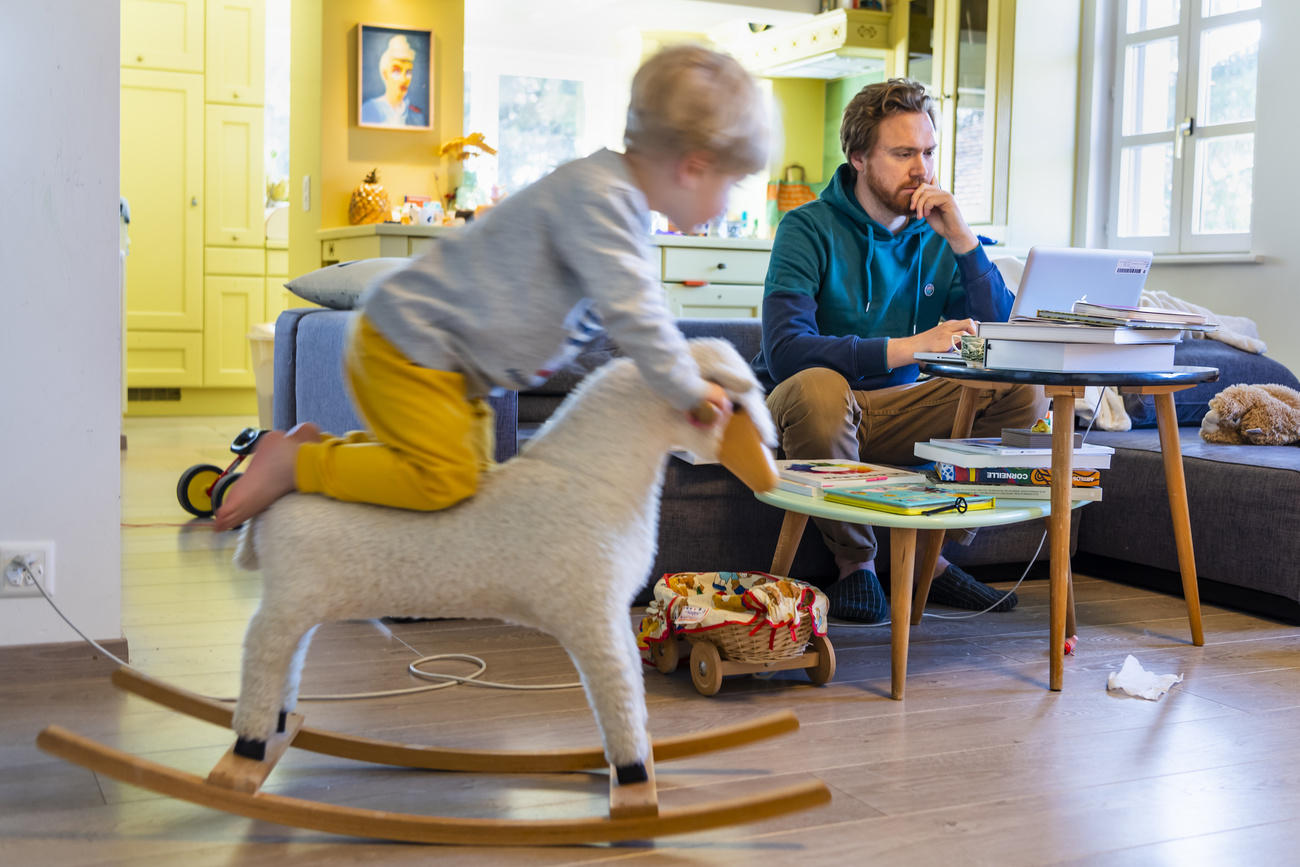
More
Swiss divided over government response to coronavirus
Forgotten risk groups
Meanwhile, as we try to cope with lockdown, stay safe, work from home or even hang on to our jobs, our focus naturally becomes more insular, and less international. Our borders are closed, and we are less interested in what happens outside them.
But United Nations aid agencies, and the International Committee of the Red Cross, still have work to do among some of the most vulnerable groups on the planet, now at even greater risk because of the pandemic.
How do you “social distance” in a refugee camp? Some of the camps, the UN Refugee Agency has warned, have little water, let alone soap. The prolonged hand washing we are all faithfully doing is impossible.
In some of the detention centres visited by the ICRC, detainees have so little room that they cannot even lie down to sleep. Keeping a two-metre distance from others is unimaginable.
Such groups, UN Human Rights has warned, are “disproportionately affected by the virus, because of their precarious conditions of existence, and should not be victimized further because of state of emergency measures”.
In the Philippines, in Bangladesh, in Syria, the ICRC and aid agencies are supplying refugee camps and detention centres with clean water, personal protective equipment, and sterilising hand wash. When we honour our hard-working health professionals, as we are doing so often these days, we should not forget the humanitarian aid agencies who are working hard to protect the most vulnerable in some of the world’s poorest countries.
And afterwards?
There will be, though it might not seem so now, a time after this pandemic. We all want to get back to normal as soon as possible. But, we are beginning to realise, it will be a “new normal”. Things won’t be exactly the same. Here again human rights groups have concerns.
We know governments want us to sign up to some form of tracking system, in order to trace disease outbreaks and shut them down before they become so widespread that we have to shut our entire economies down instead.
“I think it is very concerning because we are racing into embracing a new technology without really having adequate governance and policies and understanding of what it is that we are putting in place,” says Meg Davis, a specialist in human rights and global health at Geneva’s Graduate Institute.
Davis points out that the tracking systems used in Singapore and South Korea, and now being examined for possible adoption by European countries, had data protection problems.
“Even where the data was anonymised, it was sometimes possible for people to figure out who the {infected} person was, which then exposes them to risk.”
“And we don’t fully understand yet what the role is of the tech giants who are going to be capturing this data. Who owns the data, who can sell it, which laws govern it?”
Already, there are warning signs that Europe’s plans for a tracking system will be problematic. Swiss technology experts who had been participating in a pan European project aimed at developing a tracing App for smartphones have pulled out, saying the blueprint did not offer enough privacy protection.
Clearly, there are difficult days, weeks and months ahead. It’s understandable that our focus is on the immediate difficulties at home. But if we are to emerge from this crisis in the spirit of solidarity that the World Health Organization has so often called for during the pandemic, then the concerns of human rights groups must not be forgotten.
The refugees, the displaced, the detainees, deserve protection too. And as for our governments, as one WHO official put it, they are not “taking power”. Rather, we as citizens are “gifting it to them”, and that gift is temporary.
You can follow Imogen Foulkes on twitter at @imogenfoulkes, and send her questions and suggestions for UN topics.

In compliance with the JTI standards
More: SWI swissinfo.ch certified by the Journalism Trust Initiative
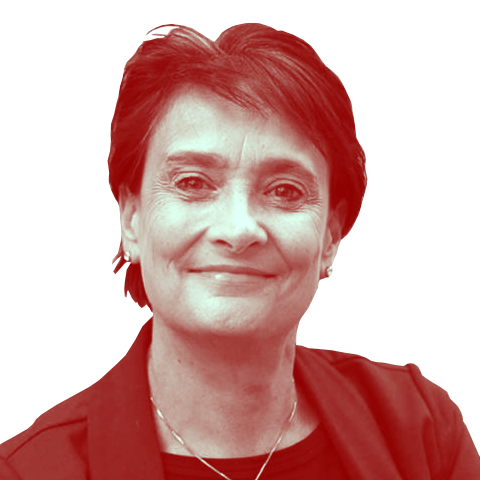
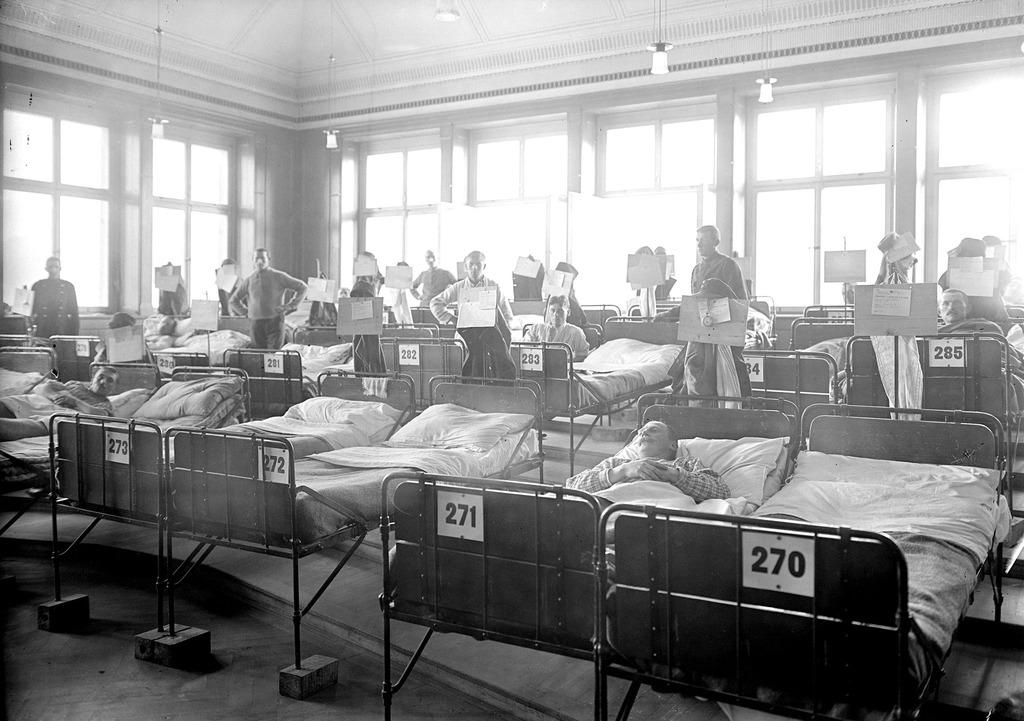
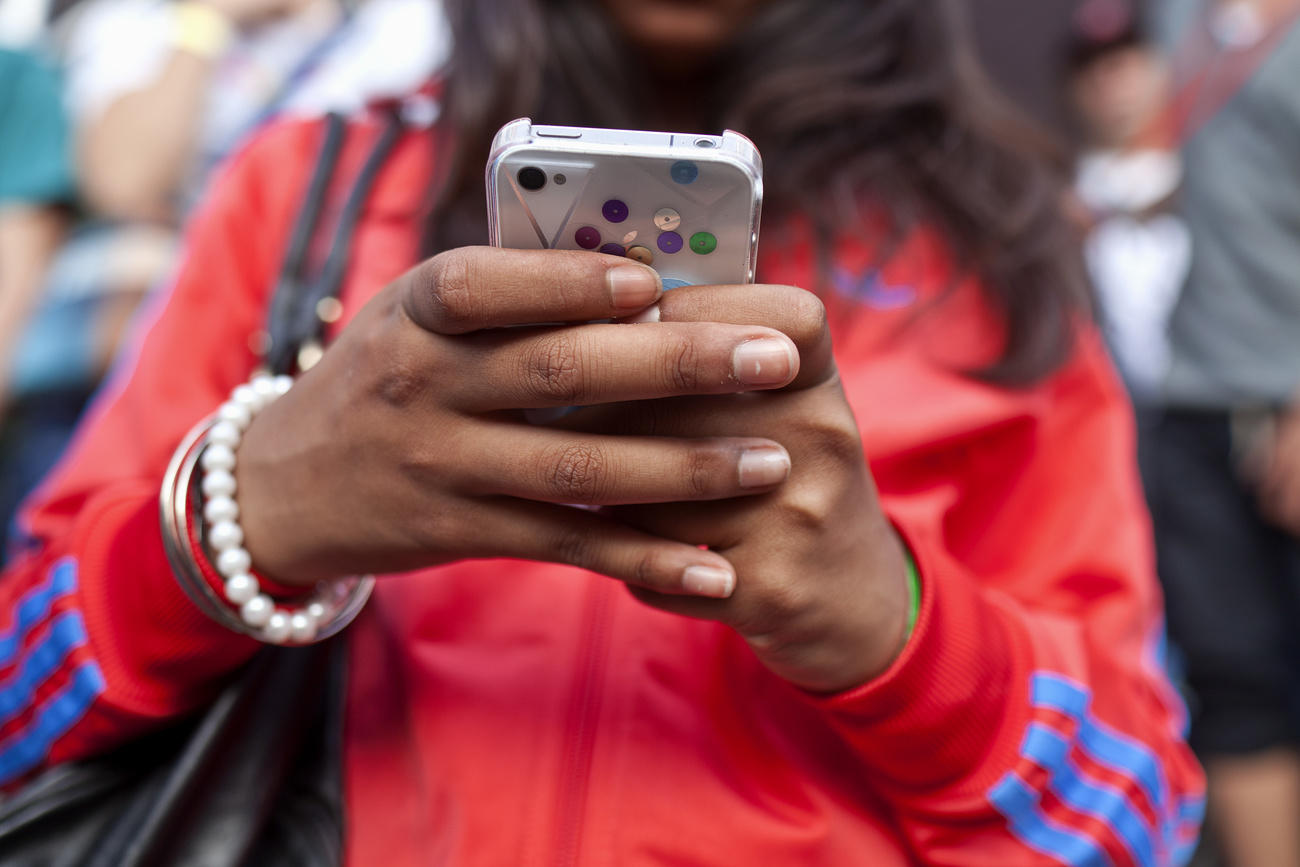
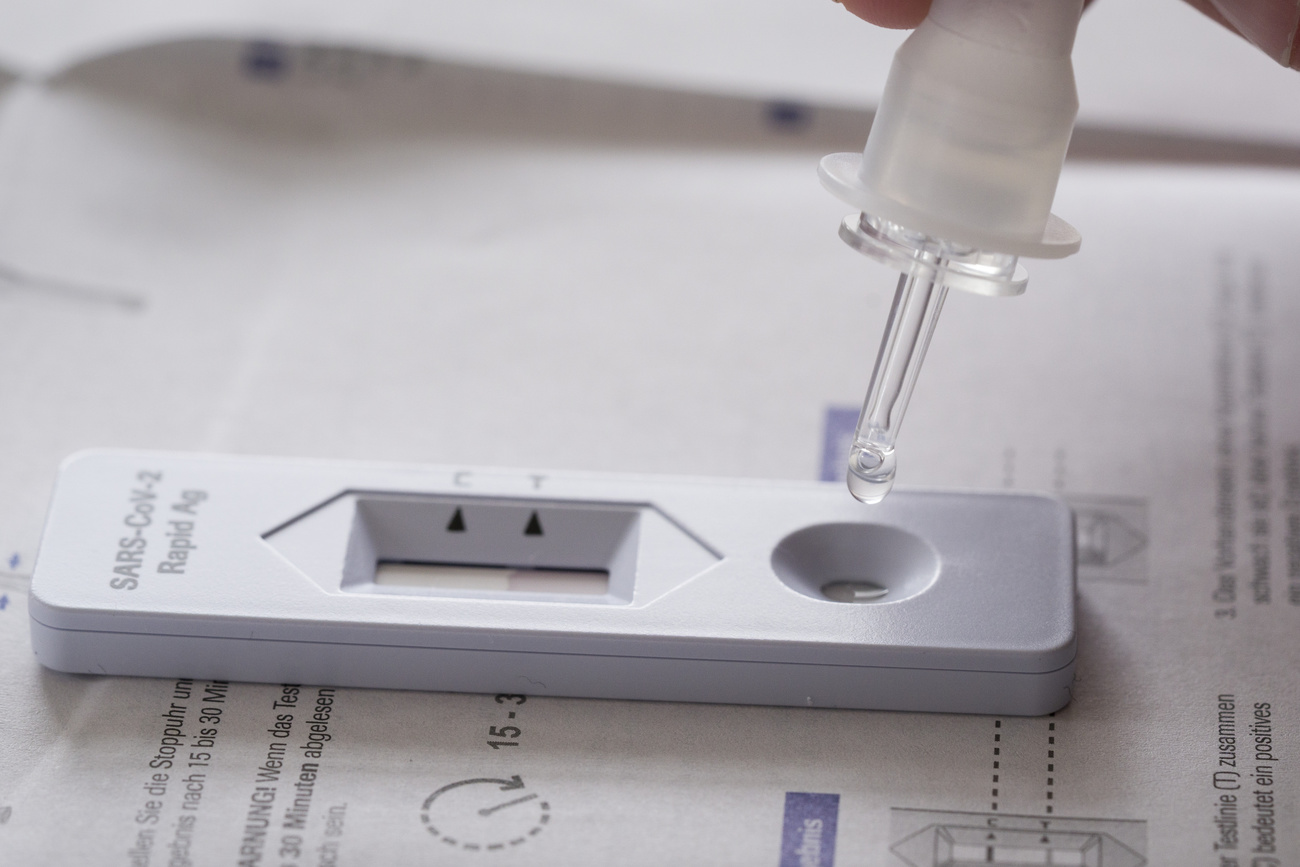
You can find an overview of ongoing debates with our journalists here . Please join us!
If you want to start a conversation about a topic raised in this article or want to report factual errors, email us at english@swissinfo.ch.